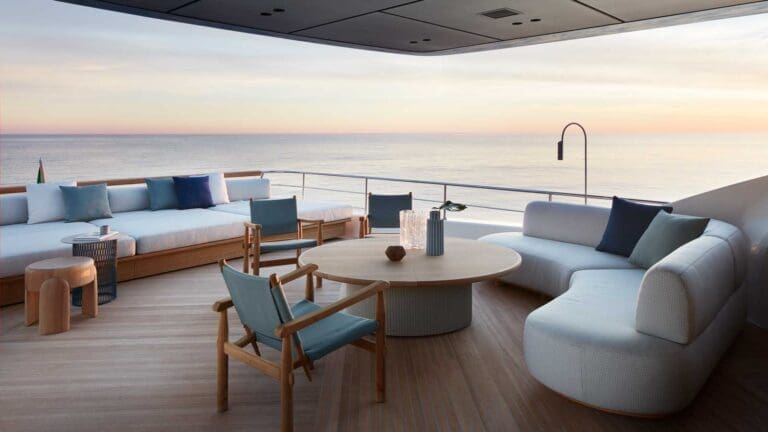The evolution of Google since its inception has been extraordinary. With so many features and services, it’s sometimes hard to work out which part of Google will drive the greatest value for luxury hotels and where your resources should be focussed.
With this in mind, we’ve conducted some research to analyse how luxury hotels currently perform in organic search and identify the opportunities to truly drive performance and maximise results in a super competitive market.
The research method
We’ve taken a snapshot of the Google results from five different countries across 196 of the highest volume keywords that relate to luxury hotels situated in London.
When we refer to ‘coverage’, we have included all results on the first page of Google. The percentage of coverage is simply the number of keywords the brand is visible for on page one, versus the total number of keywords (196)*.
For example, if a brand or URL has 196 listings on page one of Google, it would have 100% coverage for that sample of keywords.
Establishing the problem
Google has advanced content assessment algorithms that use a variety of factors to determine what users want.
For luxury hotels, we’re finding lists, within lists; in other words, Google is rewarding aggregators or publishers and they’re completely dominating the ‘traditional’ search listings.
Table A, below, shows the websites with the most coverage across our sample of keywords. We can see that aggregators/review sites are consistently visible across most of the keywords, across all the markets we assessed.
Notably, Tripadvisor and Booking.com dominate, but we see visibility from Expedia, CN Traveller and Mr & Mrs Smith too. There’s also strong coverage from publishers such as The Times, The Telegraph, Timeout and Luxury London.
But have you spotted what’s missing? The hotels themselves of course. Looking at the strength of the results, organic visibility for non-brand keywords in these results are probably not worth the effort. Google prefers to list…more lists.
Table A – ‘Traditional’ Organic Listings
| Website | UK coverage | US coverage | Switzerland coverage | Singapore coverage | Dubaicoverage |
| tripadvisor.co.uk | 92% | 105% | 90% | 72% | 96% |
| booking.com | 61% | 58% | 93% | 86% | 98% |
| telegraph.co.uk | 49% | 53% | 71% | 70% | 73% |
| expedia.co.uk | 45% | 47% | 40% | 39% | 47% |
| luxurylondon.co.uk | 45% | 51% | 55% | 57% | 55% |
| thetimes.co.uk | 20% | 14% | 21% | 23% | 24% |
| timeout.com | 17% | 35% | 25% | 36% | 26% |
| theluxuryeditor.com | 17% | 25% | 24% | 32% | 30% |
| cntraveller.com | 17% | 33% | 25% | 28% | 27% |
| mrandmrssmith.com | 14% | 21% | 26% | 27% | 27% |
Opportunity for secondary SEO
Of course, back in the day, being listed on websites that rank well in the search results would be referred to as ‘secondary SEO’. Essentially, ensuring your brand has a presence on other websites that rank for the keywords relevant to your offering
This remains a key performance driver, especially if you’re at the top of these lists and the publishers are a good fit for your wealth audiences.
However, this is just one stream of work; for direct action in search engines, is there not a better way?
Luxury hotels ARE being listed on Google, in the local search results
We also took a snapshot of the Google local listings and this is where we found all our luxury hotels.
You will see in Table B, below, that even the ‘top’ hotels have a much lower percentage of coverage compared with the aggregators dominating in our previous table.
For example, the hotel with the best local listings coverage in the UK is Corinthia London, but it only has 38% coverage.
On the other hand, Tripadvisor has 92% coverage in the ‘traditional’ listings in table A – this is indicative of more diversity in those results.
The local listings reveal a more varied result for non-brand keywords; this is the place for the individual hotels.
Based purely on what we see in this snapshot, luxury hotels do appear in the local listings but they don’t get a look in via the main organic listings due to the prominence of aggregators and review sites.
Luxury hotels should therefore invest in their Google Business Profiles, because this is where Google thinks they belong, even when users search from outside of the UK.
Table B – Local Listings
| Hotel | UK | Hotel | US | Hotel | Switzerland | Hotel | Singapore | Hotel | Dubai |
| Corinthia London | 38% | The Savoy Hotel | 37% | Savoy Hotel | 37% | The Savoy Hotel | 33% | Mandarin Oriental Hyde Park, London | 45.41% |
| The Savoy Hotel | 34% | The Ritz London | 31% | Shangri-La The Shard, London | 28% | The Ritz London | 30% | The Ritz | 40.31% |
| Shangri-La The Shard, London | 31% | Corinthia London | 30% | Hotel Ritz | 28% | Mandarin Oriental Hyde Park, London | 27% | Corinthia Hotel London | 30.61% |
| The Ritz London | 23% | Rosewood London | 26% | Corinthia Hotel London | 17% | Rosewood London | 17% | Shangri-La The Shard, London | 25.51% |
| Claridge’s | 16% | Four Seasons Hotel London at Ten Trinity Square | 26% | Claridge’s | 15% | Shangri-La The Shard, London | 16% | Bulgari Hotel London | 21.43% |
| The Landmark London | 16% | The Royal Horseguards Hotel & One Whitehall Place, London | 16% | Rosewood London | 13% | Claridge’s | 15% | Rosewood London | 18.88% |
| Rosewood London | 12% | Claridge’s | 15% | The Landmark London | 12% | The Waldorf Hilton, London | 15% | Four Seasons Hotel London at Ten Trinity Square | 17.86% |
| Bulgari Hotel London | 10% | The Langham, London | 14% | The Langham | 12% | Corinthia London | 14% | The Savoy | 15.82% |
| The Waldorf Hilton, London | 9% | The Waldorf Hilton, London | 13% | The Waldorf Hilton, London | 9% | The Royal Horseguards Hotel & One Whitehall Place, London | 13% | Hilton London Park Lane | 11.22% |
| The Lanesborough | 9% | Mandarin Oriental Hyde Park, London | 13% | Mandarin Oriental Hyde Park, London | 9% | The Langham, London | 13% | The Langham London | 9.69% |
What have we established so far and what next?
So far, we’ve focused on a sample of non-brand keywords across five markets.
- The evidence suggests that optimising listings in aggregators and with publishers is the only way to gain visibility for luxury hotels in the ‘traditional’ organic luxury hotel listings.
- We’ve also established that Google’s home for individual hotels is in the local listings and that investing efforts in your Google Business Profile is a better approach than going after the traditional non-brand listings.
However, there must be more that can be done to elevate your brand’s digital presence, especially in such a fiercely competitive market.
Reputation, reputation, reputation!
It might not sound that revolutionary, but often your most powerful asset is more obvious than you might first think.
We’re talking: reputation.
There’s no better time to invest in media that presents your luxury hotel in its very best light and stimulates users to type your brand name into a search engine as a direct result of discovering your content via paid, earned or owned media.
Doing this will beat aggregators and publishers to the punch in search engines while also giving you more control of how you present the uniqueness of your hotel to the world.
By taking this approach, you’ll still be giving Google great signs of quality, and combined with investment in the technical side of SEO and website maintenance, a strong brand combined with a fast, clean and easy-to-use website will future-proof your visibility in search engines.
In summary
The results from our research shows a huge difference between two kinds of search results in Google.
The traditional organic results are dominated by aggregators and publishers, while the greatest opportunity for luxury hotels is within the local listings.
It’s obvious when you look at it, but who’s really giving their Google Business Profile the love it deserves?
How you invest your digital budget should be given careful consideration to ensure your brand’s digital estate is as exceptional as your hotel offering and your competitive advantage is maintained.
Based on this research, here’s our recommendations for your next steps within the digital landscape:
1 – Work with aggregators and publishers to obtain prominent listings to drive lucrative referral traffic.
2 – Update your Google Business Profile; making sure it’s refreshed regularly to accurately reflect your brand.
3 – Create more brand searches by investing in media that demonstrates your brand in all its uniqueness and deliver this through paid, earned and owned channels.
4 – Invest in technical SEO, website performance, and UX to deliver a first-class experience with content and media on your website that matches the quality of your brand.
If you have any questions about this research, or indeed, would like to discuss these recommendations for your luxury hotel, please do get in touch.
*Despite the odd anomaly in the data set, for example, in the US, TripAdvisor has 105% coverage (because it has double listings on some keywords), this snapshot provides key insights that can be used to make firm observations.


